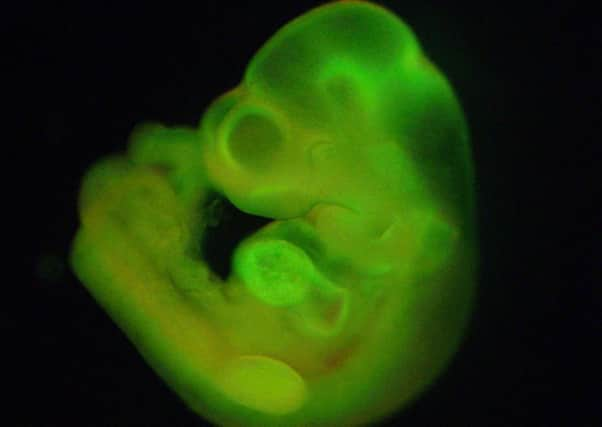Scientists find way to produce baby mice without mothers


Scientists admitted that such a scenario was “speculative and fanciful”, but did not rule it out in principle.
Working with mice, the team produced healthy offspring while bypassing the normal process of fertilising an egg cell with sperm, and without cloning. The extraordinary result means that sperm could potentially be fused with ordinary cells derived from skin or other tissue to create viable embryos.
Advertisement
Hide AdAdvertisement
Hide AdIt also raises the possibility of ethically questionable applications that turn nature on its head by doing away with the female side of reproduction. Gay men, for instance, could have babies with each other, and a man could even fertilise his own cells to produce offspring containing a mixture of genes inherited from him and his parents.
More realistically, the technique could allow women whose fertility has been wiped out by cancer drugs or radiotherapy to have their own children. While eggs can be frozen before cancer therapy and later fertilised in an IVF clinic, currently nothing can be done once they have been lost. Conception using sperm and somatic cells would also aid the preservation of endangered species, since it avoids the need to recover eggs.
Lead scientist Dr Tony Perry, a molecular embryologist from the University of Bath, said: “Our work challenges the dogma, held since early embryologists first observed mammalian eggs around 1827 and observed fertilisation 50 years later, that only an egg cell fertilised with a sperm cell can result in live mammalian birth.”
But he stressed that the early work demonstrated only a principle, and major hurdles would have to be overcome before reproduction without egg cells became technically feasible.
He added: “This is speculative – it’s entirely speculative and fanciful.”
For the experiment, the scientists started off by creating “parthenogenote” mouse embryos. These are all-female embryos made without sperm by tricking an egg into developing as if it has been fertilised.
Mammalian embryos produced this way usually die after a few days because they lack the right programming. But Dr Perry’s team of researchers found that injecting the parthenogenotes with sperm transformed them into normal embryos that went on to produce healthy offspring. The outcome is reported in the journal Nature Communications.